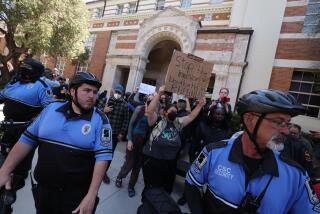The politics of troop cuts
THE SMART MONEY in Washington is betting that President Bush will make deep cuts in U.S. troops in Iraq before the coming November elections. Sages, journalists, legislators and staffers say Bush will be under irresistible pressure from Republicans fearful of losing Senate and House seats unless he clearly shows we’re on our way out. They’re wrong, as usual, because their perennial disease is to overestimate politics and undervalue presidential beliefs.
If we know anything about George W. Bush, it is that he is a true believer, and he believes in “staying the course” in Iraq to make sure, as he recently said, that Baghdad moves toward democracy and becomes an American ally in the war against terror. Not that he is incapable of changing his position when facing political defeat, as we saw before Christmas when he twirled around on the torture issue. But it is folly to underestimate a president’s obsession with not losing a war.
And the odds stand very high that he believes Iraq will plunge into civil war if he makes reductions before November of about 50,000 troops out of the current total of 158,000 -- no matter how much better deeper cuts would play in the campaign.
Bush is very likely to resist pressures for such deep troop cuts for much the same reasons that President Johnson did in 1968 during the Vietnam War. That’s mostly because no president wants to be seen as losing a war. But also, Johnson wasn’t running for reelection in 1968, and Bush won’t run in 2006.
LBJ had taken himself out of the presidential race in March 1968. He did so in good part to remove himself from political pressures to slash troop levels to the point that he believed would jeopardize the U.S. commitment to prevent a communist victory.
Sure, his vice president and the Democrats’ candidate for president, Hubert Humphrey, constantly implored him to stop the bombing of North Vietnam, start the negotiations with Hanoi and limit U.S. troops. But LBJ moved very slowly on a bombing halt and talks with Hanoi. In fact, in the run-up to the elections, he actually increased U.S. troops in Vietnam to over 550,000.
Those smart bettors in Washington will counter that Johnson only had nine months left to serve, while Bush has three years. They’ll say Bush will have to be far more responsive to congressional Republicans than LBJ was to congressional Democrats in 1968, otherwise the GOP majority on the Hill will turn against him and he’ll be a lame duck for the rest of his presidency.
But this argument ignores the fact that LBJ was taking a political pounding that Bush has so far been spared. LBJ had to confront the highly inflammable issue of the draft, massive antiwar street riots and over 30,000 troop deaths in Vietnam. By contrast, Bush only has to contend with a politically calmer all-volunteer military, barely audible grumblings at universities and troop deaths that just exceeded 2,000.
The only recent president to make substantial troop withdrawals during continuing combat was Richard Nixon. He cut force levels in Vietnam from 550,000 to about 70,000 before his reelection bid in 1972. But 70,000 seemed safe because it included heavy U.S. airpower, a million-man South Vietnamese army and a lower level of overall combat in South Vietnam.
All this suggests that as Bush balances domestic demands for troop withdrawals with worries about the situation on the ground in Iraq, he’ll err toward his worries. Like LBJ, Bush is much likelier to keep troop cuts far short of what he sees as the danger point. Which means, I think, cuts of about 50,000 troops before November.
Based on my 10-day visit to Iraq last spring and contacts with U.S. officials there, I believe he would serve his goals in Iraq better if he made more significant cuts, and faster, and made clear that the direction is out. The bulk of our troops should be gone from central Iraq, the main battleground, in two years or so, with some redeployed northward to Kurdistan and some to Kuwait, just in case of civil war. And I believe this for the very reasons given by Gen. George Casey, the commander of U.S. forces in Iraq: Lowering force levels, he said, “doesn’t feed the notion of occupation” and doesn’t “feed the culture of dependency.” This is easy to decode: Iraqis will rely on us to pull their chestnuts out of the fire until they’re convinced we’re leaving the job to them, and our large-scale presence is fueling the insurgency as much as it prevents civil war. It’s hard to know what the tipping point is.
There’s wisdom here that I can only hope will inform Bush more than the political pressures of Washington or his own gyroscopic fears of defeat. Taking hard-headed risks -- ordering faster and deeper troop cuts and redeployments than he now plans -- may be the only way to avoid losing.
More to Read
Get the L.A. Times Politics newsletter
Deeply reported insights into legislation, politics and policy from Sacramento, Washington and beyond. In your inbox three times per week.
You may occasionally receive promotional content from the Los Angeles Times.






